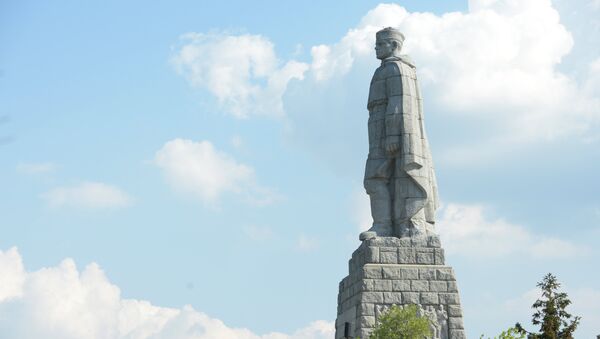MOSCOW (Sputnik) — The Russian embassy in Bulgaria has sent a note demanding Sofia to thoroughly investigate the desecration of a monument in Plovdiv commemorating Soviet soldiers who died in the World War II, Russian Foreign Ministry spokeswoman Maria Zakharova said on Saturday.
"No assaults can affect our solid position of rewriting the results of World War II and justifying the neo-Nazi manifestations. Back in the 1940s, our soldiers fight to save our lives, the life of the future generations. Today, we are paying our debts to them," she said stressing she had received the messages from the Bulgarian nationals with their regret about the vandals’ actions.
#OTD in 1957 the famous #Alyosha Monument in #Plovdiv #Bulgaria was installed to commemorate heroism of Soviet liberators in #WWII pic.twitter.com/NfzOJMmM7N
— Russia in RSA 🇷🇺 (@EmbassyofRussia) 5 ноября 2017 г.
The statement comes as Bulgaria’s Foreign Ministry has condemned the monument's desecration, calling such acts of vandalism unacceptable.
Multiple acts of vandalism against the Soviet war monuments have occurred in countries of Eastern Europe over the recent years. For instance, the mass grave of Soviet soldiers in the Polish city of Sosnowiec and places of remembrance in Warsaw and Olsztyn. In July, Polish President Andrzej Duda signed into law a bill on the prohibition of communist propaganda that regulates the demolition of Soviet-era monuments. In Bulgaria, apart from the Alyosha monument, Soviet Army Monument in Sofia often gets vandalised too, giving rise to the harsh comments from the Russian Foreign Ministry. The Russian Foreign Ministry also condemns desecrating the honor of the Soviet warriors.



